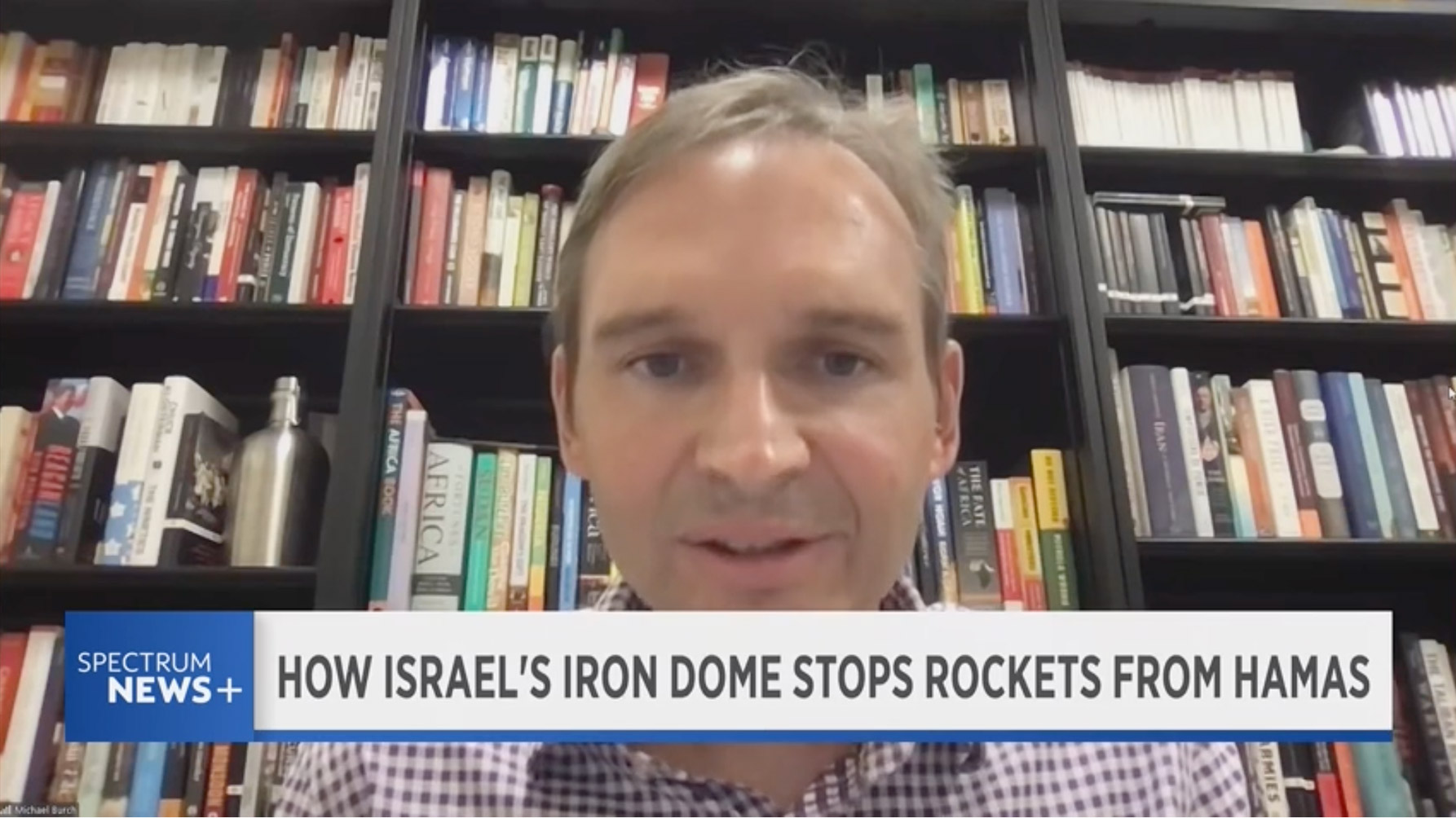Michael Burch, Ph.D., associate professor of political science at Eckerd College, has lived and done research in the Middle East, Turkey, Ghana and East Africa. During the Fall 2023 semester, he is teaching International Relations, Middle East Politics, and The Globalization of Crime. Much of his research focuses on understanding why people use violence to achieve their political goals.
On October 7, 2023, Hamas, the militant Islamist group that controls the Gaza Strip, shocked the world by launching an invasion of neighboring Israel. Hamas fighters massacred hundreds of civilians at a music festival and in a kibbutz. They also took more than 200 hostages, including some Americans, back to the Gaza Strip. So far, more than 1,400 people have been killed in Israel, making this the deadliest attack by militants since the foundation of Israel in 1948.
The attack also created a humanitarian crisis. As Israel mounts a counteroffensive against Hamas, more than 8,000 Palestinian civilians have been killed; hundreds of thousands have had to flee their homes; and food, water, fuel and medical supplies are running out. There are also growing fears the Israel-Hamas war could spill over into a regional conflict. According to recent news reports, shelling has intensified in recent days between northern Israel and southern Lebanon, a stronghold of the Iran-backed militant group Hezbollah.
Burch has been following the events in Israel and the Gaza Strip closely. “It’s the first thing I check when I wake up in the morning,” he says. “I want to see what developments I might have missed overnight.”
Burch often is asked how he sees the conflict playing out, a question, he says, that’s not easy to answer. “It seems like no one has much of a concrete plan as to what happens next,” he explains.
“The shock of everything that has happened caught us and the world off guard. Hamas has a political wing and military wing. There are reports that the military wing didn’t inform the political wing they were going to do this. And we see this with the hesitation of the ground invasion that Israel had been threatening.”
Israel’s response, Burch says, will play a major role in coming events. “If Israel launches a full-scale ground invasion, it could be hard for Hezbollah to remain on the sidelines. If there’s going to be daily news footage from a ground war in Gaza, that could increase the pressure on Hezbollah to open another front and engage Israel more directly. There’s always a possibility of scaling into a regional conflict. It’s like a series of dominoes.
“There is still so much we’re learning,” he adds. “Some people claim Iran knew about the attack on Israel; some say Iran knew nothing. Some people will point to negotiations between Israel and Saudi Arabia as being a motivating force, or to the fact Israel has been incredibly divided this past year. We’ve seen mass street protests in Israel over the [prime minister Benjamin] Netanyahu government’s judicial overhaul. Hamas could have thought this was a time when Israel was weakened and divided.”
When U.S. President Joe Biden spoke to the nation recently, he said he would ask Congress for $60 billion in aid to Ukraine, and $14 billion in aid to Israel, to help those fellow democracies fight two vastly different and unpredictable wars. How Congress acts, given its own division, is just as unpredictable, Burch says.
“The president is definitely trying to thread the needle within Congress. There has been increasing resistance among Republicans to provide funding for Ukraine but a lot of support to provide funds for Israel. He was trying to link them together to try to secure more funding for Ukraine.”
What Congress does is also being closely watched, Burch says. “Whenever a major event like this occurs, we see a lot of concern that China, for instance, is looking at the U.S. response to Ukraine as a way to gauge a response to [a possible Chinese invasion of] Taiwan. There is always a downstream effect.”
As for how the United Nations can intervene, Burch says that, too, is uncertain. “The United Nations’ role can only be what the member states want it to be. The U.N. doesn’t have its own force. Everything has to come from member states. There’s not much they can do unless the five permanent members of the Security Council agree.”
Those five members are China, the United States, France, the United Kingdom and Russia.
Ironically, it was a sense of stability that may have contributed to the instability that now exists. Israel’s relationship with the Palestinians, Burch argues, had become very manageable for the Israelis. “The conflicts and violence had gotten to a level where Israel didn’t feel much impetus to negotiate. They could live with the status quo. It’s hard to imagine the status quo can be seen as accepted by any side going forward.
“Unfortunately for those of us who value peace and care about human rights, it is hard to imagine a peaceful resolution to the conflict in the near future.”













